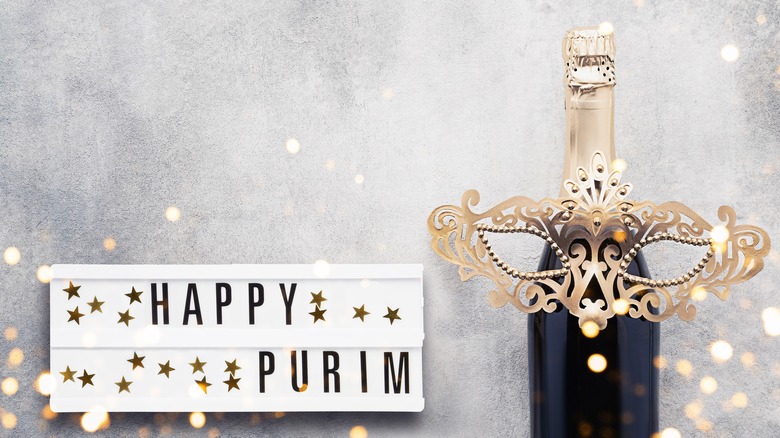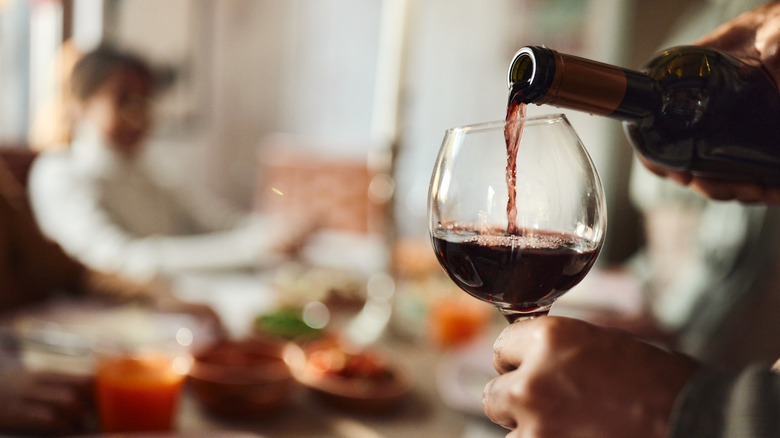What To Know About Drinking On Purim
With the beginning of spring comes an exciting Jewish holiday known as Purim, which remembers the survival of the Jewish people during a time of persecution in the ancient Persian empire. It is a holiday that is celebrated with carnivals, costumes, storytelling, buttery hamantaschen cookies, and more. As with many religious holidays, if you don't personally observe Purim, you may be wondering what the rules around alcohol are when it comes to this event. It may surprise you to learn that drinking during Purim is not only allowed but encouraged.
While many observances of persecution are solemn occasions, Purim is anything but. The holiday is one of joy, noise, laughter, and gift-giving as it is viewed as a time of triumph and victory. As such, the scripture around Purim advises that those who observe it should eat, drink, and be merry to their heart's content, and most interpret this guidance to include drinking alcohol. In any case, while drinking during Purim is not required, it is also certainly not forbidden, and many Jewish folks tend to incorporate libations into their celebratory spread as they would for a secular special event.
What drinks are traditionally enjoyed during Purim?
Before you break out the hard liquor, it is good to know that the typical alcoholic drink of choice during Purim is wine. This is because of the significance that wine has in many Jewish traditions, religious ceremonies, and in the culture at large. As such, if you are attending a loved one's Purim get-together for the first time, a bottle of wine is a safe bet for a host gift — just make sure the wine is kosher. While seen less often, cocktails are still fair game for enjoying during Purim too. Again, just make sure to look out for a kosher label on the cocktail ingredients used.
If you prefer not to drink or are serving beverages for those under the legal drinking age, there are plenty of fun, festive alternatives to alcohol. Grape juice, particularly the sparkling variety, is a tasty option that approximates the flavor and aesthetic appeal of wine. If you find this option to be a bit too sweet, you can always mix it with cranberry juice or tart cherry juice to introduce more sourness or bitterness. When it comes to cocktail substitutes, you are in luck — mocktails are all the rage lately, with options ranging from canned mocktails to DIY recipes. If you make them yourself, there are many ingredients that can elevate mocktails to be just as sophisticated as their boozy counterparts, including botanical beverages, probiotic drinks, and flavor extracts.

